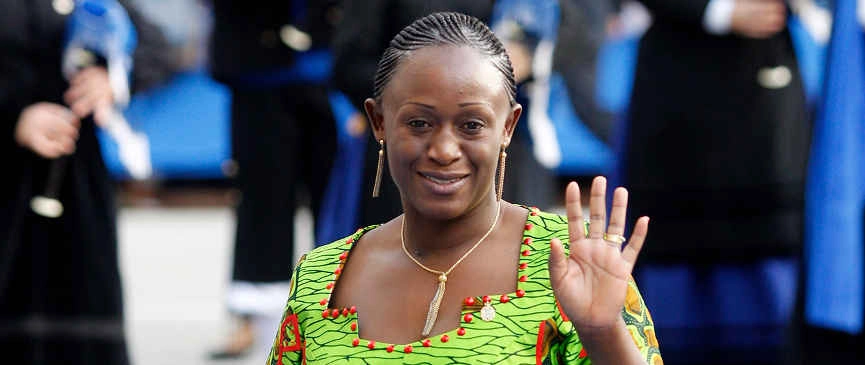Main content
Caddy Adzuba Prince of Asturias Award for Concord 2014

Caddy Adzuba (Bukavu, Democratic Republic of Congo, 1981) holds a law degree from the Official University of Bukavu and has worked for the Search for Common Ground NGO (USA). She currently works as a journalist with Radio Okapi, the radio station of the UN Stabilization Mission in the Democratic Republic of Congo (MONUSCO), which has broadcast nationwide since 2002. She has been under a death threat since she reported the sexual violence suffered by women in her country, at war since 1996. She has almost been killed twice and is under UN protection.
A renowned activist for freedom of the press, peace-building and human rights, especially those of children and women in conflict zones, via journalism Caddy Adzuba denounces the torture and violations suffered by Congolese women and girls while promoting their reintegration into a society in which they are repudiated for this circumstance. The activist advocates the implementation of UN resolutions 1325 and 1848, which expressly condemn the rape of women and children in situations of armed conflict. Moreover, she appeals to the conscience of the leaders of developed countries and multinationals with economic interests in the Congo to invest in the area in order to promote a society ravaged by poverty and war.
Member of the East Congo Women’s Media Association, she has presented different allegations to the International Penal Court and the US Senate, denouncing the rape of women in the Democratic Republic of the Congo. It is estimated that an average of forty women and girls have been raped each day since the beginning of the conflict. She is also a member of the Un Altavoz para el Silencio (Speaker for Silence) network, a project of the Euro-Arab Foundation (Spain). Caddy Adzuba has featured in the short film PourQuoi? by Spanish photographer Barbara Allende Gil de Biedma, Ouka Lele, and producer Isabel Bettina, where she tells the true story of a raped woman who was forced to eat her own children held in captivity as a sex slave. The object of the short film is to disseminate facts such as this, which women and girls in her country suffer daily, and to provide support for the journalist in her fight to out and end to this violence. The film became the centrepiece of the exhibition entitled PourQuoi? Un cruel banquete (Why? A Cruel Feast), by Ouka Lele, which is open to the public at the Circulo de Bellas Artes in Madrid until the end of May, 2014.
Her personal courage and the social impact of her work have earned her numerous awards, including the Julio Anguita Parrado International Journalism Award, the Spanish Federation of Journalists Award (2009), and the Club 25 Association of Women Journalists Award. In 2010, the University of Malaga bestowed her with the International Press Freedom Award and, in 2012, she received the Woman of the Year Award from the Aosta Valley Regional Council (Italy).
End of main content
